"The first time I saw him walk down the hallway at the Pentagon," quipped an old colleague in a slow, southern drawl, "I thought ... 'He looks like one mean [S.O.B.]!'"
And if you have the pleasure of talking with the former sergeant major of the Army, you'll realize he still has that edge. But underneath the tough exterior is a kindred Soldier whose loyalty remains dedicated to training the troops.
Julius William (Bill) Gates, who now serves as a liaison officer at the Joint Readiness Training Center at Fort Polk, La., for the Army Research Institute, still manages to spend time with Soldiers during unit rotations at JRTC - and the Soldiers love seeing him. At every site visit, star-struck Soldiers of all ranks come pouring out from makeshift shacks and marketplace stores that so closely resemble the real thing downrange - just to get a chance to speak with the former SMA, or better yet, take a photo.
His role at the training center includes coordinating projects for ARI, assisting with data collection and interviews for particular studies. ARI's main objective in their JRTC research is identifying leadership problems throughout each rotation. Once critical training issues have been identified, ARI designs and executes a study that typically runs the course of eight rotations through JRTC, allowing the group to gather data from more than one unit. In turn, the gathered data then serves as a catalyst in developing "intervention" methods, which are manifested in the form of Army training tools to help improve the discovered deficiencies.
For Gates, it's still all about the training. In almost every conversation, he emphasizes, "Tough, realistic training is the best way to prepare Soldiers and units for combat." And he's definitely still in the business of training Soldiers. Typically working eight to 10 hours a day, he observes each rotation at JRTC firsthand, sometimes staying out in the field all night.
Serving as the eighth sergeant major of the Army from July 1987 to June 1991, Gates witnessed a great deal of change and served as a catalyst for several important initiatives, some of which are still in effect. Gates led the Army's NCO Corps during several conflicts and skirmishes, to include Operations Desert Shield and Desert Storm in Saudi Arabia, Kuwait and Iraq; Operation Just Cause in Panama; and Operation Golden Pheasant in Honduras.
Gates grew up working on the family farm and at his father's service station in the Piedmont region of North Carolina. Born on June 14, 1941, Gates was the sixth child out of nine. He said his parents, especially his father, believed in hard work and attributes some of his success in the military to this work ethic.
In order to help support the family, Gates dropped out of high school at 16 to work in the service department at a local Ford dealership. He said he had "always wanted to join the military as he was impressed by the uniforms when Soldiers returned from World War II." So, after working a year at the dealership, he sought his parents' consent to join the Army. "My father was all for it, but my mother took some convincing."
After Initial Entry Training, Gates was sent to the 6th Infantry Division in Berlin, Germany. One of his assignments there was guarding Nazi war criminals at Spandau Prison, which at the time housed Rudolph Hess, Albert Speer and Baldur von Schirach. When American Soldiers took charge of their monthlong stint and exchanged guard duty with the Russians, the changing of the guard stands out in Gates' memory.
He was assigned to the second guard tower for duty. The guard towers had ground entrances that were locked, and the towers themselves had trap doors that were also locked. Essentially, the Russian soldiers were locked in from the outside. During the shift change, Gates said, the Russian soldier he was to relieve insisted that all doors must be locked. Gates' commander of the relief refused to lock his Soldiers inside, saying, "That ain't the way we do business in the United States Army."
"That almost caused an international incident," Gates said. "But it's a good example of the differences in the two societies."
Gates got out of the Army at the end of his three-year enlistment and returned to work at the Ford dealership. But, he soon realized that he missed Army life. He decided to "make the Army a career" and re-enlisted. This time around, he requested an airborne assignment at Fort Campbell, Ky. "The 101st Airborne Division left an everlasting impression on me," he said.
Gates attributes a great deal of his growth and success as a Soldier and leader to one of his most influential NCOs, his platoon sergeant, Victor G. Franco, whom Gates described as "one of the finest NCOs I ever had the opportunity to serve with. He tried to make you learn stuff and took a hell of a lot of time developing his NCOs."
"Every Soldier in that platoon did well," which Gates attributed to Franco's efforts. "I will never forget this individual. When you'd go to the field, he would rotate squads as the point squad for the platoon during movement. Every man in the platoon had a map, and they all had to land navigate from point A to point B. It wasn't just the squad leader looking at his map or following his compass."
Because of Franco's tutelage, Gates says he can navigate anywhere across the world.
It was Franco who ordered Gates to Ranger School. "Same thing with Jumpmaster School; the 3rd Army NCO Academy; Aerial Delivery School; Air Transportability School; Chemical Biological, Radiological School; Pathfinder School; and completing the GED," he said.
The former SMA may be reluctant to discuss his own accomplishments and experiences, but at every opportunity, he gladly shares memories about Soldiers he served with.
RANGERS LEAD THE WAY
"Ranger School is probably the most intense course you'll ever attend in the Army." But Gates said the 101st Airborne Division prepared its Soldiers for Ranger School with the infamous Recondo School. That "school was, beyond a doubt, the toughest school I attended. It is two weeks of pure hell," he said. But it prepared him well for Ranger School.
Later in his career, while assigned to the Ranger Department as an instructor, Gates taught Ranger students the basics during their first few weeks of the course. As a sergeant first class in 1967, he was the senior instructor for bayonet training and assistant senior instructor for land navigation. "We administered a vigorous training program. Every morning we executed long and fast runs and took Rangers on forced road marches." From there, they went out to Camp Darby for about a week or so and learned basic patrolling skills, after which they were transported to the Mountain Ranger Camp in the Dahlonega Mountains in northern Georgia. After his second tour in Vietnam and an assignment in Bamberg, Germany, Gates went to the Mountain Ranger Camp in 1973, where he served as chief instructor for the patrolling committee.
He says the people were the best thing about the assignment, as his unit was "a tightly knitted group of NCOs, officers and young Soldiers. Everybody there was sort of like a family. That was the unique part of the assignment."
After Dahlonega, Gates was assigned to several different Ranger commands, including another stint at the Ranger Department at Fort Benning as the 3rd Ranger Company first sergeant. In 1977, he took his third first sergeant assignment at the 1st Ranger Battalion, Fort Stewart, Ga., after graduating from Class 8 of the U.S. Army Sergeants Major Academy, in 1977.
He vividly recalled leading company physical training shortly after arriving to 1st Ranger Battalion. "I decided I was going to run the heck out of them," he says while chuckling. "I was in the best shape of my life then, because I used to run so much while at USASMA. I needed to set an example for my new unit and the run was one way to do that. I took off at a very fast pace, and we ran for about five miles. None of the Rangers complained, and everyone gave it their all. I did that to gain their respect, so that they knew I could do it, too. One of the traits of good leadership is never asking your Soldiers to do something you wouldn't do yourself."
Later, Gates would describe these same men with the utmost respect, as he recounted a training exercise with the same battalion, conducting an emergency deployment to rescue a hijacked aircraft. The company-sized element jumped into a Nevada training area at night, but as many an old airborne paratrooper will tell you, "The Air Force doesn't always drop you directly on the drop zone," he said.
"This training mission was executed prior to a Special Operations unit being formed for such missions," Gates explained. Hence, the 1st Ranger Battalion was the Army's special reactionary force at that time.
Once on the ground, the unit converged upon the aircraft, rescued the hostages and was immediately extracted. Gates said the training was executed perfectly, but little did he realize several of his Rangers sustained injuries from the airborne assault. They had landed on rocks near a mountain range instead of on the designated drop zone.
"Not one of those Soldiers complained or had any type of medical assistance until that operation was complete. I think the quality of Soldiers in the 1st Ranger Battalion at that time was probably the best in the world. There's no doubt about it; they were the best Soldiers in the world. We had very high standards, not only physically and mentally, but also emotionally."
VIETNAM
Gates, who served two tours in Vietnam (1966-67 and 1969-70), was hesitant to discuss his experiences in combat, specifically the Vietnam War. "I don't really have much to say about that. Yes, I have bad dreams like everyone else, but we already know what happened there," he said.
In the most humble of ways, Gates will instead discuss freely and openly his Soldiers. "Draftees were some of the finest Soldiers I ever served with," he exclaimed.
He recalled how one of his Soldiers selflessly put himself in harm's way in order to take out a Viet Cong machine-gun point. "They had us pinned down, and I will never forget how one of my Soldiers, without hesitation or a second thought, rushed that bunker and took out the machine gun. He never questioned anything, and he did it for his battle buddies," Gates said.
"It was never too bad, the first tour. I think the morale and esprit de corps of the Soldiers were fine. They were well trained, well disciplined, no problems," he explained. "I didn't have any discipline problems at all. None." Gates, who still has a notebook from that tour with all of his Soldiers' names in it, said his squad could do just about anything he asked of them. "All those great Soldiers were just that, and they saved my life! I think my biggest job was holding them back at times."
As the former SMA points out, "There's been a lot said, a lot written and a lot of photographs about Vietnam, the things we did over there ... good, bad or indifferent. All I'll say is that in my experience, I did not have any Soldiers with disciplinary problems in Vietnam. I never had a Soldier not do what I asked of him."
Recalling one of the missions while on his second tour with Company K, 75th Rangers, Gates said his unit carried out a successful platoon-sized ambush. Intelligence sources indicated a North Vietnamese Army high-value target was planning to link up with local enemy forces on a trail located between Pleiku and An Khe.
"Our platoon was given a mission to emplace a night ambush at the intersection, neutralize the enemy forces and, if possible, capture the high-valued target. We sent in a team to recon the site, and the platoon moved cross-country and established an area ambush along the trail network. We destroyed the enemy unit and captured a logistics officer who controlled the enemy logistics for that area. That ambush was probably the most successful area ambush that I had in the two years I spent over there," he said.
SERVING THE SOLDIERS
Under his tough exterior, and with formidable sincerity, Gates says that what occupied his time the most, "more than anything, was training the Soldier and doing what we could to influence the training, conduct training and ensure that NCOs were trained as best we possibly could. And we trained some officers, too. We enforced the standards of the Soldiers who served in the organization, and there are a lot of ways you can do all those things."
Gates' list of accomplishments in initiating or implementing programs to enhance training or the lives of Soldiers is rather lengthy. During his tenure as command sergeant major of 8th Army and U.S. Forces in Korea, 1985-1987, the former SMA recalls several rewarding things he helped kick off.
"We had one of the best Soldier of the Quarter programs in the world. The Association of the U.S. Army totally supported that awards program," which included an all-expense-paid trip to Hawaii for the NCO and Soldier who won the 8th Army competition.
Gates and his command were also responsible for refurbishing the 8th Army NCO Academy. But the former SMA wasn't the only one pushing for change in order to improve the conditions in Korea. Gates' first wife, Margaret, was responsible for the renovation of a local orphanage.
"She was involved with an orphanage, with Asian-American kids who were orphans," he explained. With around 40 children living in a very small building with one bathroom and one sink, "that girl went up to that orphanage, and she came back crying and mad as heck. She got CSM Art Garcia, who at the time was commandant of the NCO academy, to go look at the orphanage, and he took over as sponsor of the orphanage. He spent a lot of his own money and time to renovate the facility. Margaret, the NCO wives, officer wives and everybody else she could get money out of contributed to that orphanage." Gates also said that his wife was instrumental in developing the child-care and family support centers throughout the Army community.
Gates describes their time in Korea as a lot of fun. "The morale and esprit de corps were just fabulous over there." He's proud to have had the opportunity to have a large input into the development of the NCO Evaluation Report "as we know it today, and the same thing with family support. The opportunity to serve with joint forces in Korea prepared me to assume my next assignment in the Pentagon."
Once Gates took his post as sergeant major of the Army, he worked diligently with his chief of staff, Gen. Carl E.Vuono, with many of the priorities that focused on training and quality of life issues. Emphasizing that the priorities were really those of the chief of staff, Gates said he merely made suggestions and offered points of view from the field. Their command was responsible for many of the Morale, Welfare and Recreation programs that are still in effect today, for example, Family Readiness Groups and Better Opportunities for Single Solders.
We can also thank the former SMA for The NCO Journal. Initially, it was his idea to begin a magazine specifically focused on NCOs and NCO issues.
Improving uniforms was also a highlight for Gates. He and Vuono approved about 150 uniform changes. "We would take the uniform items to the field and allow Soldiers to wear the shirts or jackets and then bring input back to the chief of staff. We were concerned about the quality of the materials used in the uniforms; we didn't want to change the colors or anything," he said.
One of the things Gates said he's very proud of is the uniform raincoat. "The raincoat didn't have a belt with it, nor did it have the military appearance. So, we put a belt with it, we put epaulets on the shoulders. Then on the back, there was an opening, which has some historical significance to it, so we re-established that," he explained.
Changes were also made to the length and cut of the Class A and Battle Dress Uniforms so they would fit Soldiers better. Gates said the command worked extensively on boots, "trying to get a boot that was conducive to Soldiers in all parts of the world. In fact, we adopted a new desert boot, which was issued to the troops, in some cases, when they were deployed to the Middle East."
The former SMA credits Vuono for institutionalizing the Installation of Excellence, a program that specifically looks to improve living conditions on installations. Gates recalled sitting in a meeting with top officials discussing extensive projects within the Installation of Excellence program, when one of the officers asked for Gates' opinion.
"Sir, if we could just get the washers and dryers fixed in the barracks, we would be doing something right for the Soldiers. If the washers and dryers don't work, then the Soldiers can't wash their clothes," he explained.
"Those are the types of Soldier issues I tried to ensure were brought before the senior leadership of the Army." And Soldier issues were always at the forefront for Gates.
One afternoon, toward the end of 1989, as Secretary of the Army John O. Marsh Jr., Vuono and Gates were walking down the hallway in the Pentagon for a meeting to close out "The Year of Training," Vuono asked Marsh what the following year's theme should be. Marsh said he would have to think about it, and that's when Gates saw his opportunity.
"Sir, you know, we have just completed 'The Year of Training,' and what better way to continue that emphasis on training than make this the year of the first-line trainer ... 'The Year of the NCO,'" Gates said.
Marsh said, "Bill Gates, you're always talking about NCOs and Soldiers," which Gates happily took as a compliment. "I don't care what [may be happening], that is always your interest. You never say anything else, except Soldiers and NCOs."
"Every once in a while I talk about officers and civilians, too," Gates quipped. And it was this interest, this constant push for the NCO and Soldier, that gave way to Marsh institutionalizing The Year of the NCO.
STILL CARING FOR SOLDIERS
When Gates isn't working the grind at JRTC, he's very involved within the local community as a member of the Beauregard Parish Chamber of Commerce, where he sits on the military affairs committee.
About a year ago, Gates was instrumental in arranging a ceremony for pinning the Purple Heart on a local Vietnam veteran. During the Vietnam War, the man received a Purple Heart, but it was never officially awarded to him. He merely received orders for it after his discharge.
Gates recommended to the deputy commander of the JRTC operations group, Col. Eric Conrad, that they travel to Merryville, La., and hold a long-overdue ceremony for the veteran.
"We went down and pinned it on him, and that place was packed with people," Gates explained.
Through tears in a heartfelt speech, the medal recipient expressed his appreciation for those Soldiers who allowed him to survive the war. He said that in all reality, those Soldiers deserve this award. The award, the ceremony, wasn't really for him. "It was for my buddies," he expressed.
Gates said the veteran shared his gratitude for everyone attending and taking time out to recognize, not necessarily his efforts, but those ultimate sacrifices made by his buddies.
Additionally, Gates is involved with the local chapter of the Veterans of Foreign Wars in Deridder, La. "In fact, they voted me in as a trustee for that chapter. We're involved in community activities and certainly veterans' activities."
One of the accomplishments the former SMA is very proud to have assisted with is bringing in a permanent Veterans Administration representative to Deridder. "The number of retirees and active duty veterans in Deridder has increased tremendously over the last four or five years," he explained. "They had a VA representative who would come [in the office] from 1 p.m. until 4 p.m., one day a week. Veterans, their spouses, even dependants of veterans who have passed away, would go up there, wait for hours and never get to see anyone."
Pushing the issue through state and federal levels of the VA, Gates' VFW members managed to get a representative to staff the local office three days a week, eight hours per day. "Now the representative is able to take care of the people who come in, and I'm really proud of that [accomplishment]."
But Gates' influence is more than peripheral; he is still very much in the game. Having almost daily contact with Soldiers participating in JRTC rotations, even conversing with Soldiers he runs into on Fort Polk, his presence is very much felt throughout his community.
Gates remains humble in his role serving the Army through ARI and JRTC. His main mission is still training troops and is always willing to share advice and experience with any anyone, no matter rank or position.
When asked what stands out as the most important things he learned from the Army, Gates' answers come easily and without hesitation. "I learned to work with other people and perform extreme duties with others under extreme circumstances, whether it was training or the reality of combat. You see how individuals react in different situations, and you learn some very good lessons from them."
But above all else, he says that learning how to motivate and influence people has been the most important gift from the Army. And of course, he said he was influenced by some very outstanding Soldier-leaders.
"I think being able to form a team and be a team member, then to be able to influence individuals under very tough circumstances and in different situations - that's the most critical thing I learned while I was in the Army. And at the same time, having a real care for others, to make sure that my Soldiers were taken care of the best they possibly could," he said.
Gates explained that caring for Soldiers is not the same as coddling them or spoiling them. "If it's tough, realistic training, which is the most important thing, make sure they have their equipment and the equipment is ready to go to war - and Soldiers know how to operate their equipment. Those are the things that are important."
"Try to develop your Soldiers," the former SMA advises. "You always want to develop Soldiers, get them to move forward instead of backward. I've always said you have three categories of Soldiers: the outstanding Soldiers (Soldiers of the Quarter/Year, get promoted rapidly); then you have the mediocre Soldiers who meet all the standards, but they just merely meet the standards, don't exceed them; then you have those who are just below the standards."
"If the leader is a real leader, he or she will do everything possible to move those Soldiers up a notch. And if you do that, then you're an effective leader in my opinion."
Gates also says that a good leader never stops learning. Regardless of rank, leaders should continue to learn. This sentiment includes learning from the lowest enlisted, because even "they do things that sometimes you'll learn from. Even if it's something that's out of the ordinary, you can still learn something if you want to. So, keep an open mind."
Dubbed the "canteen cup-level sergeant major of the Army" because he replaced Pentagon china with canteen and Styrofoam cups, Gates is a Soldier's Soldier. His time in the field no longer requires rucking and running, but the mission remains the same: training Soldiers. "I think that's the most important thing," Gates explained, "how to manage people. I call it leadership. I like to go out in the field and lead Soldiers by example," and he continues to do so today.
"The fellowship you build in the Army is much, much different from our civilian society," said the former SMA. "Once you build a friendship or relationship with a Soldier, it stays forever."
Editor's note: Some information taken from an oral history interview with Sgt. Maj. Erwin H. Koehler in 1994, part of the Sergeants Major of the Army History book project.
To contact Linda Crippen, e-mail linda.crippen@us.army.mil
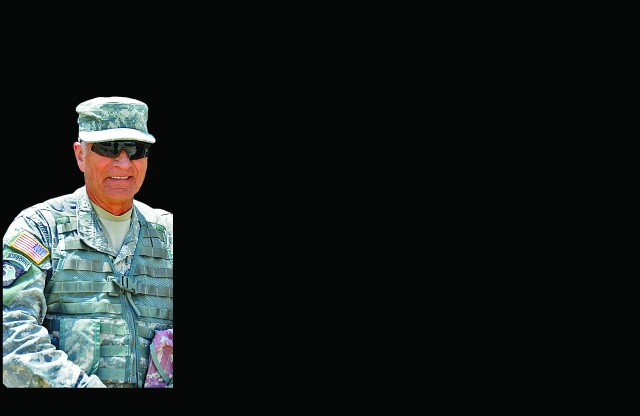
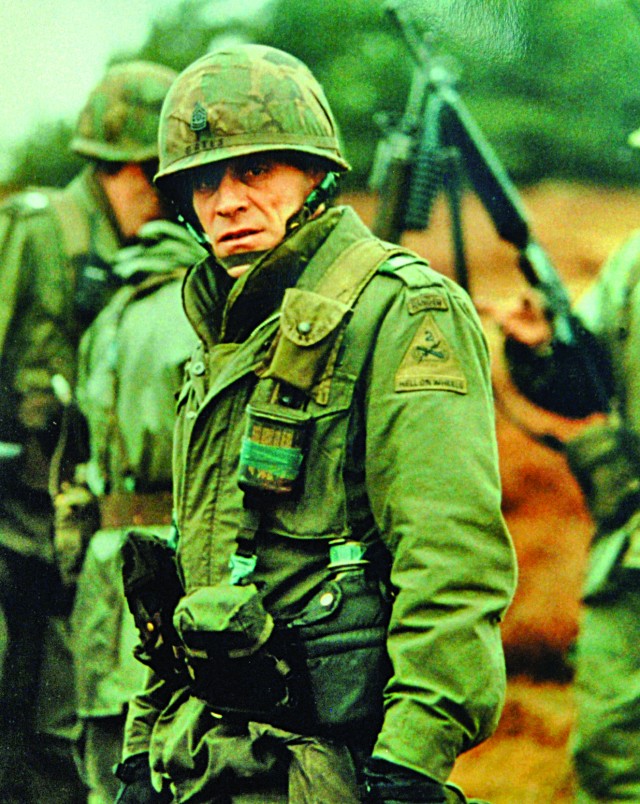
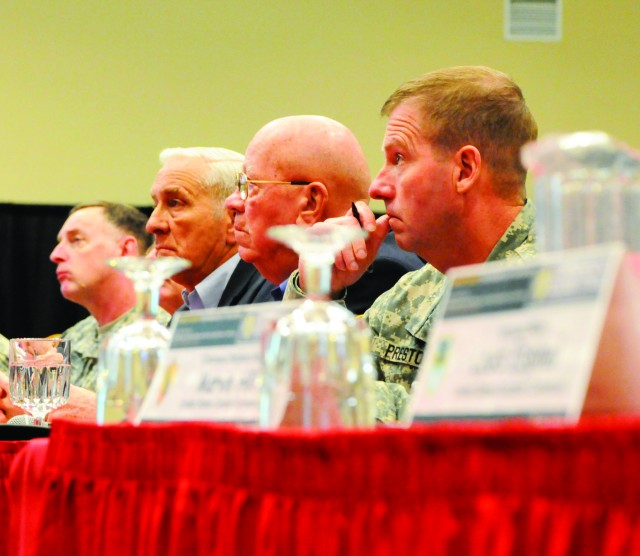

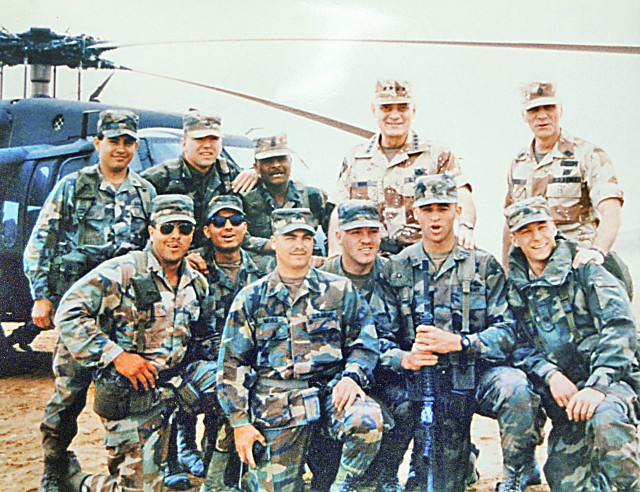
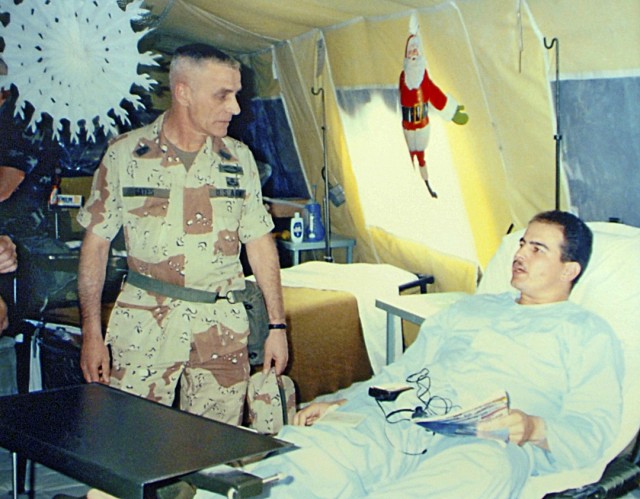
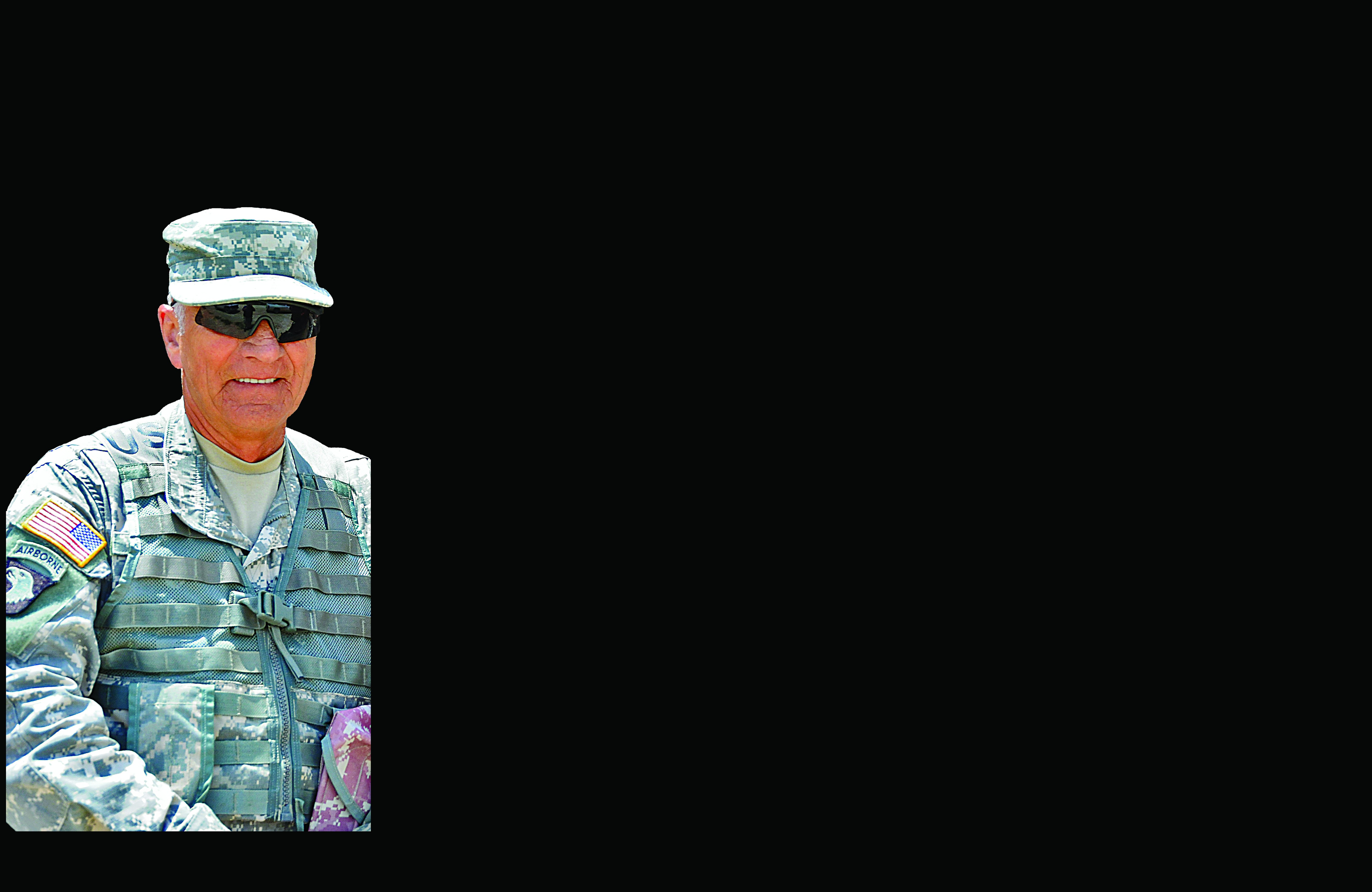
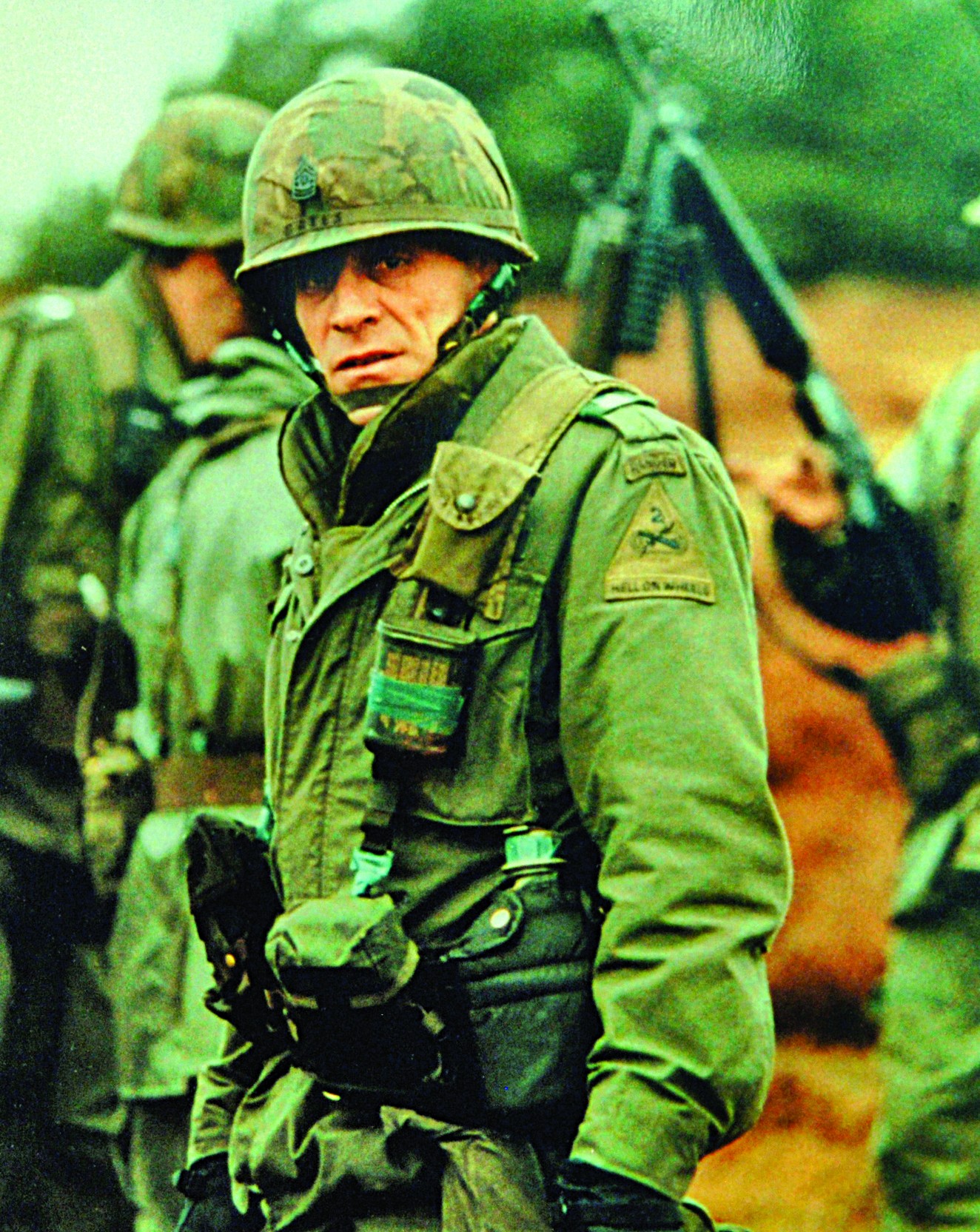
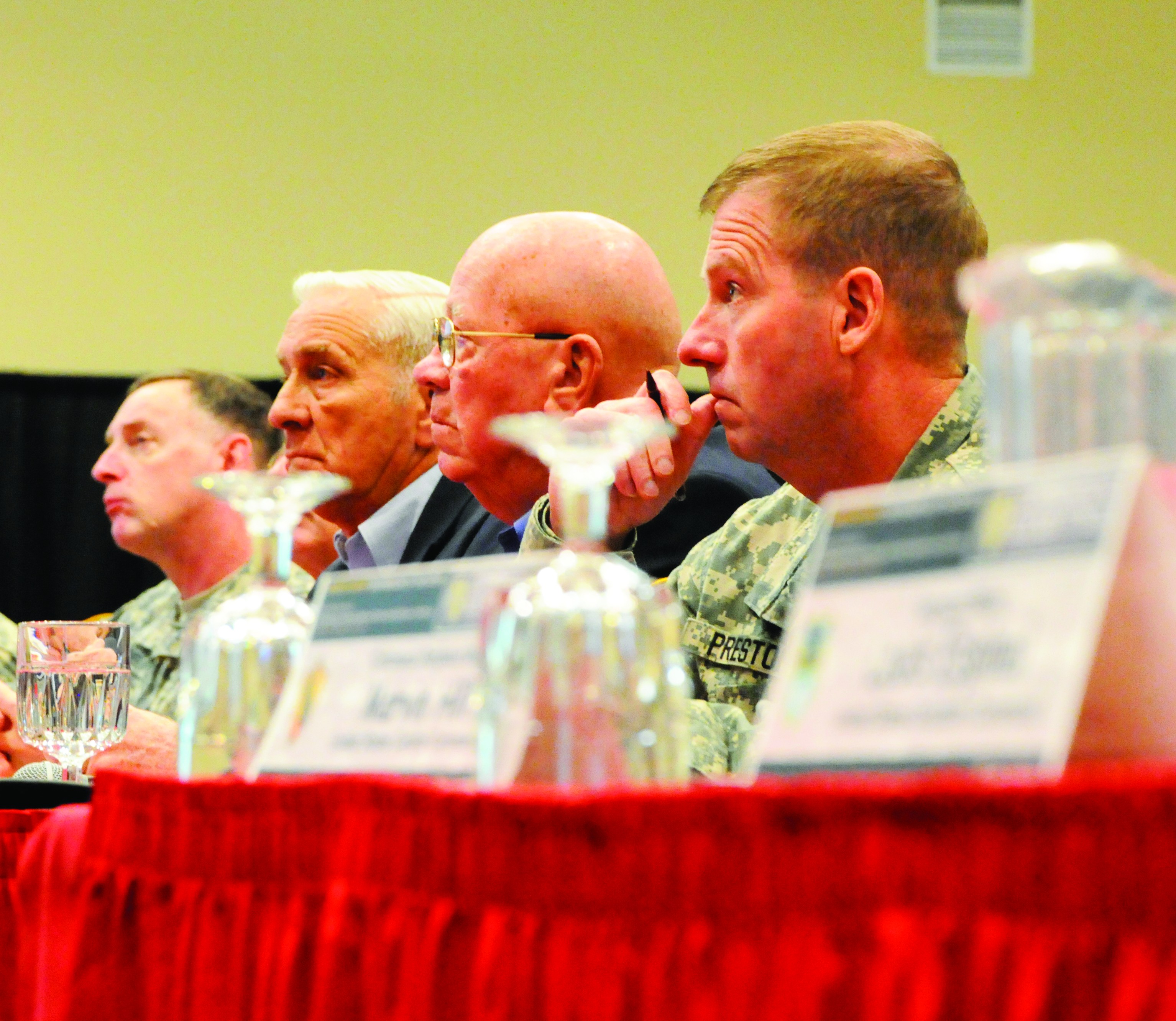
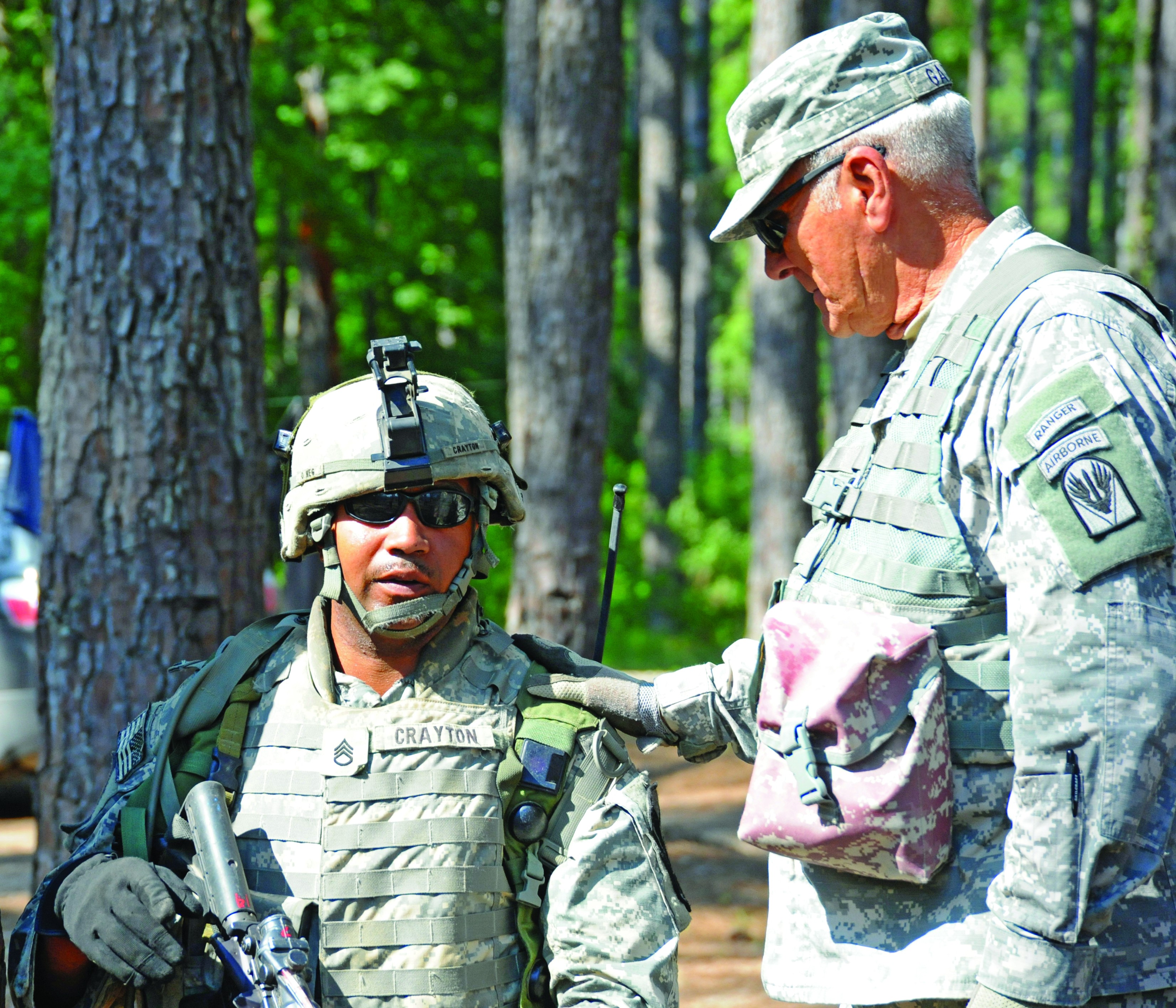
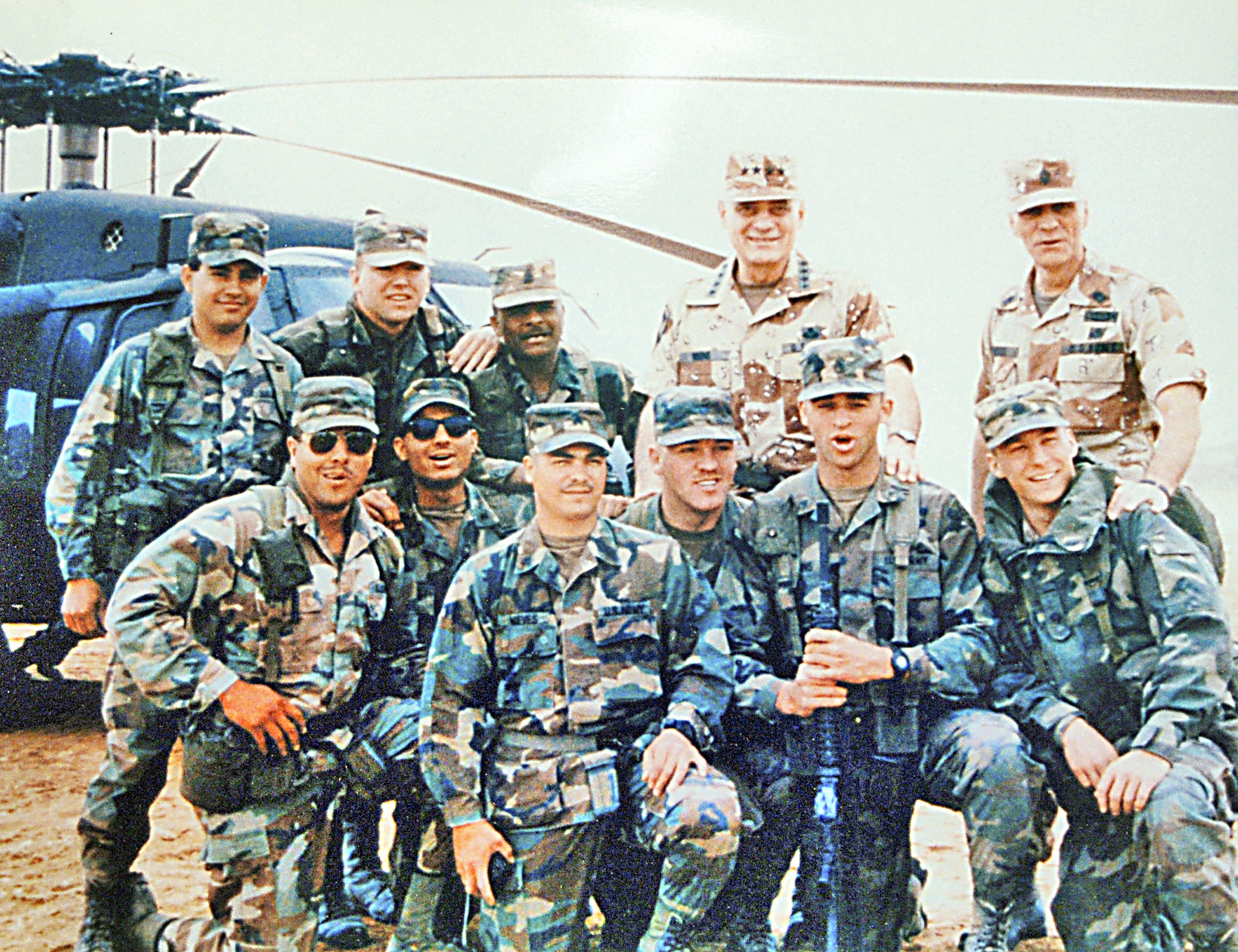
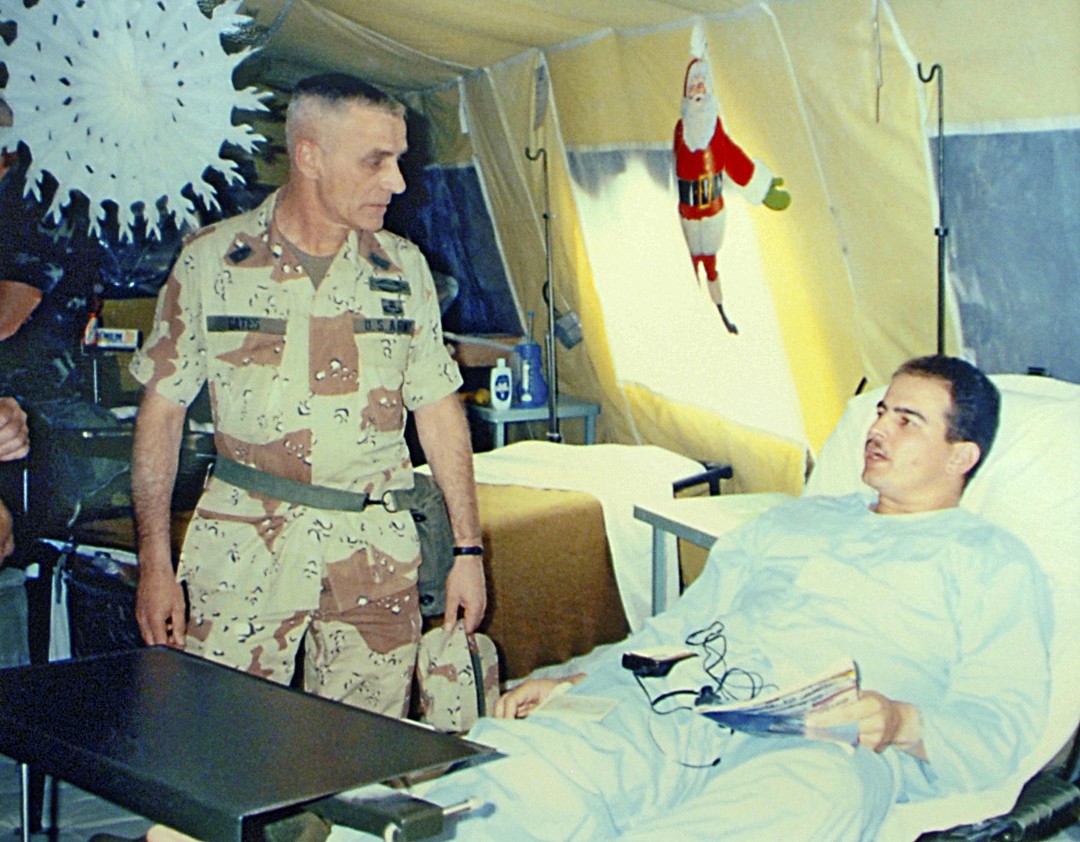
Social Sharing